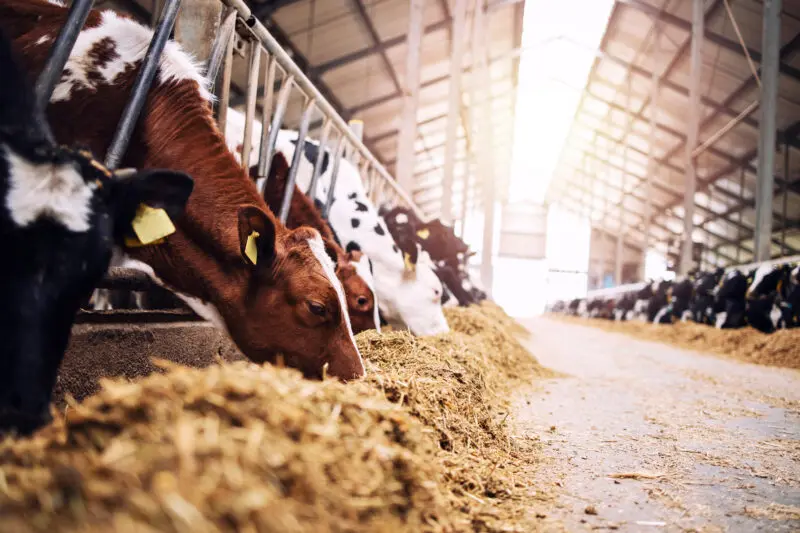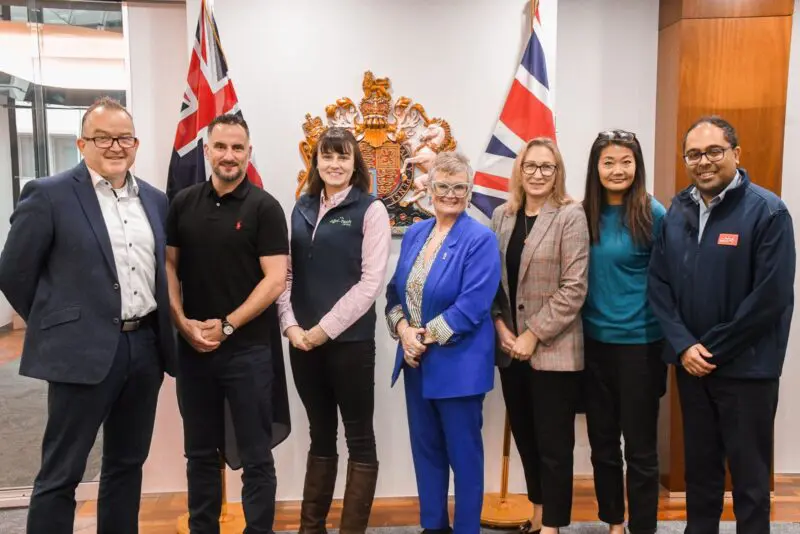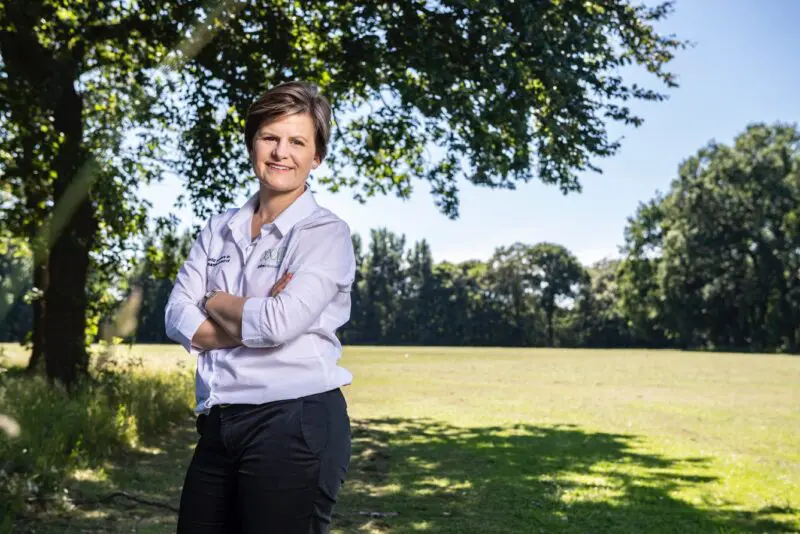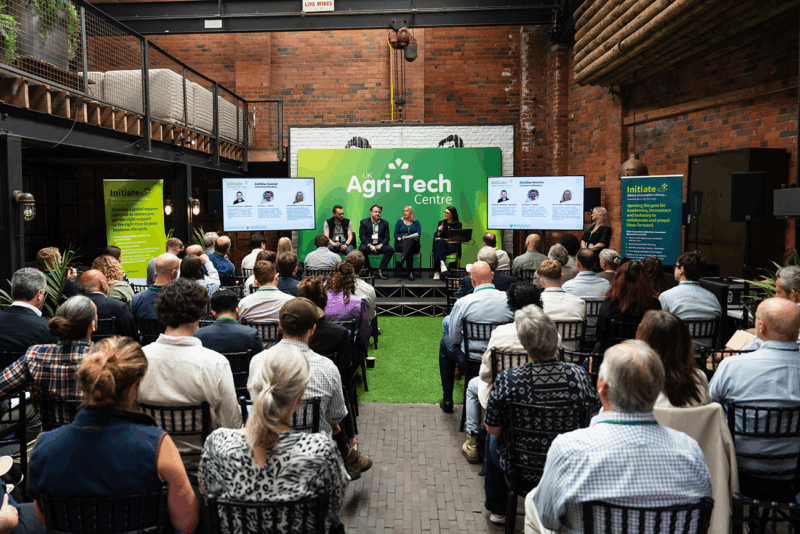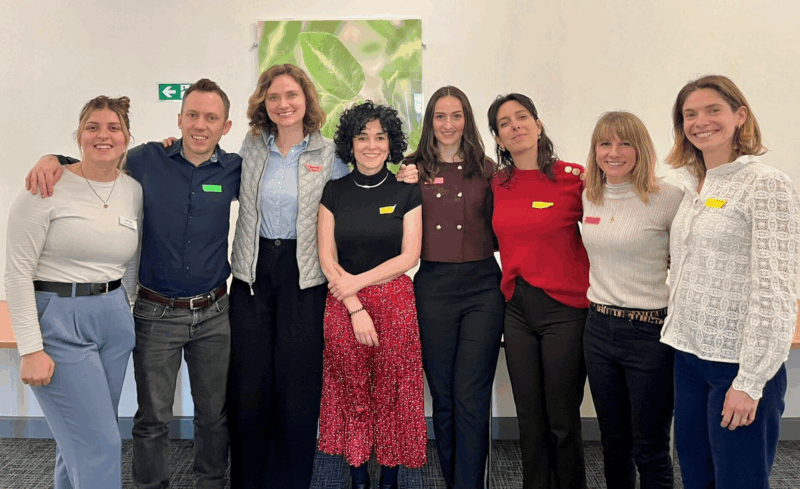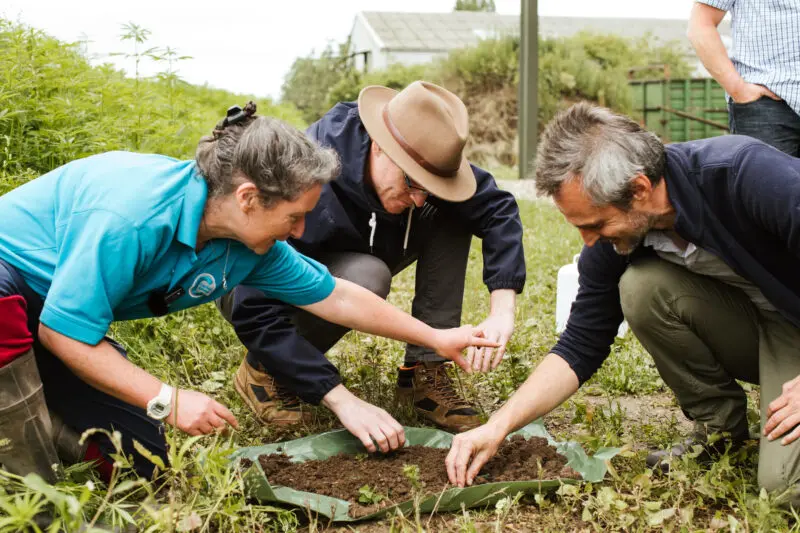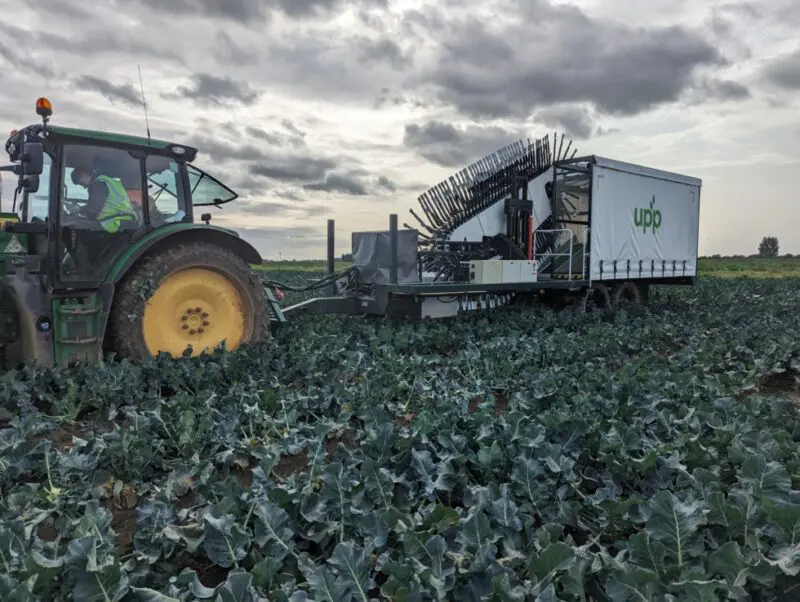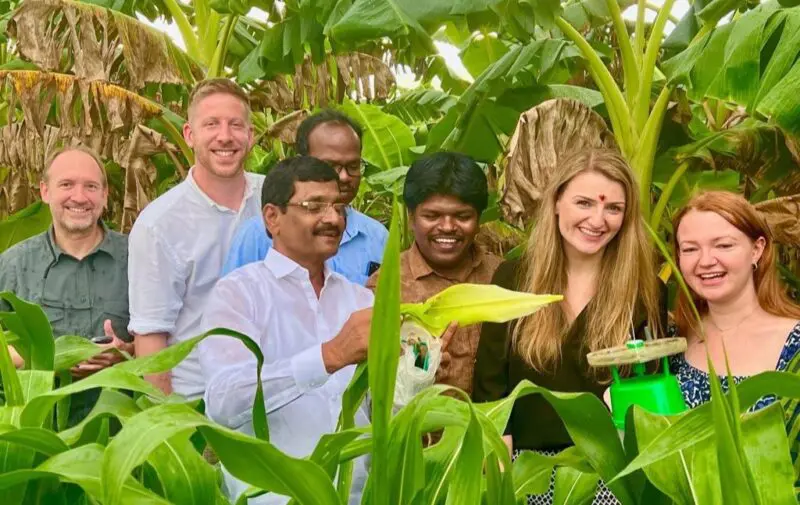In June 2025, the UK Agri-Tech Centre embarked on a strategic mission to New Zealand, reinforcing our commitment to fostering international collaboration in agricultural innovation. Supported by the British High Commission and the UK Department for Business and Trade in New Zealand, the visit built on the 2024 Memorandum of Understanding signed with AgriTech New Zealand, opening new pathways for joint research, innovation and investment. Spanning two action-packed weeks, the programme included engagement with leading researchers, agribusinesses and innovation accelerators across Auckland, Hamilton, Palmerston North, Taupo and Tauranga. Central to the visit was our active participation in Fieldays®,the Southern Hemisphere’s largest agricultural event with a footfall of over 110,000 people, providing a platform to showcase UK capability and explore collaboration with one of the world’s most dynamic agri-tech ecosystems. James Kayam, International Business Development Manager at the UK Agri-Tech Centre, said: “New Zealand’s agri-tech sector is already a global player, combining deep farming heritage with digital innovation. Sharing cross-seasonality benefits, the UK and New Zealand both have maritime climates, fertile soils and a strong focus on producing high-quality food for demanding consumers. The UK has much to offer as a complementary partner, including access to our world-class science and research and a base for European markets and beyond. Through this visit, we’ve identified opportunities to work together on supporting Kiwi companies looking to do business or set up in the UK, identifying opportunities for UK companies in NZ and joint projects where we can work together in areas such as sustainability, automation and animal health.” Highlights from the visit During Fieldays, the UK Agri-Tech Centre engaged with key stakeholders including Fonterra, AgriZeroNZ, Plant and Food NZ, Bovonic and Horticulture New Zealand.Conversations focused on co-developing solutions for sustainable intensification, precision livestock management and low-emissions farming. A highlight was the UK Government-sponsored “Connected for Growth” event in which Carolyn Harris MP (Trade Envoy to New Zealand) gave an address to the Fieldays audience. The event included a panel discussion, where Dr Bethan John, the UK Agri-Tech Centre’s Animal Health Specialist, joined global expert leaders to discuss the power of innovation and collaboration in shaping the future of Agri-Tech. Beyond the Fieldays event, site visits further enriched the mission, which included: Sprout Agritech, New Zealand’s premier agrifood-tech accelerator and its portfolio company BioLumic, whose pioneering UV crop treatments have transformative potential. TCS NZ Ltd, developers of automation and digital process control solutions with ambitions to enter the UK market. EKO360 Tnue, whose controlled-release fertiliser technology is helping farmers improve nutrient efficiency while reducing environmental impact. Cucumber, who are combining custom software development, biosensing innovation and digital strategy to help businesses make smarter, data-driven decisions. Bluelab, a leader in horticultural automation and sensing tools, empowering growers with precision control over their growing environments. Robotics Plus, an agri-tech innovator developing autonomous vehicles and smart automation solutions to tackle labour shortages and boost productivity in horticulture and forestry. Zespri International, the world’s largest kiwifruit marketer, whose scale, innovation and global reach are a testament to New Zealand’s horticultural leadership. Dr Bethan John, Animal Health Specialist at the UK Agri-Tech Centre, said: “What stood out throughout our time in New Zealand was the openness to collaborate and the clear alignment in goals—particularly around animal health, food system resilience and sustainability. There’s strong potential to co-create solutions that can collectively benefit farmers, consumers and the planet.” Collaboration to address real-world challenges The visit also provided opportunities to address sector-wide challenges, from labour shortages and climate adaptation to regulatory alignment and farmer adoption of new technologies. Shared values around responsible innovation, One Health and digital transformation were central to many discussions. As we return to the UK, the UK Agri-Tech Centre remains focused on progressing conversations with our New Zealand counterparts. Whether through joint R&D, market entry support or innovation exchange, we are excited to translate dialogue into action—fostering impactful partnerships that support global agricultural resilience. Thank you to all the individuals and organisations who hosted, collaborated and shared their insights. We look forward to the next chapter of agri-tech collaboration between the UK and New Zealand. If you would like to learn more about this visit, international knowledge change or have any questions, please get in touch via info@ukagritechcentre.com
